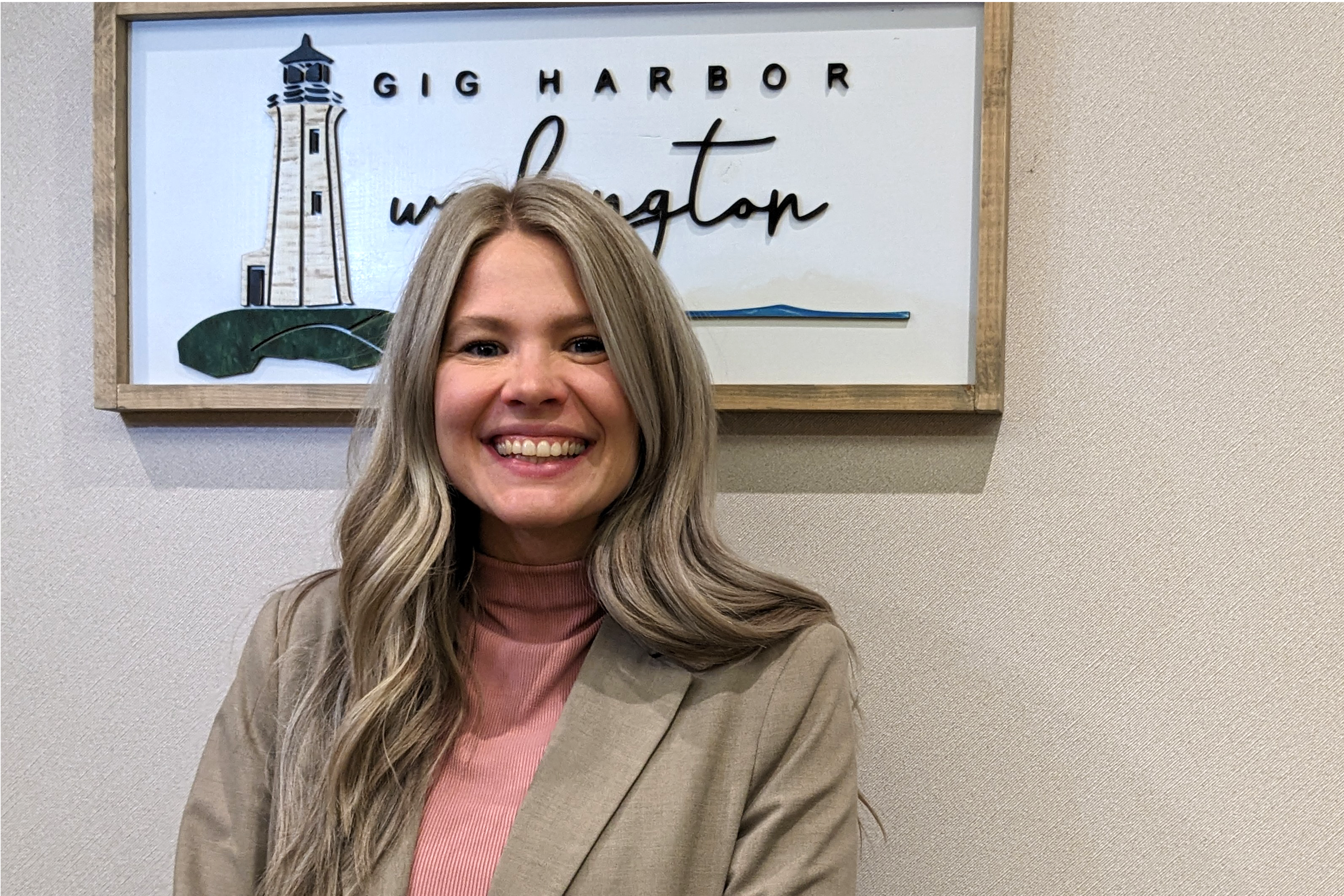Community Government Health & Wellness
Opioid settlement funds help city reach out to those in need
Homelessness, substance abuse, and poverty are not always visible throughout Gig Harbor. But Shea Smiley can attest that there are struggling residents who the city hasn’t been serving.
“When the need is not readily seen, sometimes there is a perception that there isn’t a need. But we know there is one,” she said. “We field calls, we have people coming to (service) popups and, a more longstanding data point, is the Fish Food Bank has been in the community for 40 years.”
Social services manager
Smiley, hired in October, is the city of Gig Harbor’s Housing, Health and Human Services manager. She is the first employee at city hall solely focused on the residents’ social service needs.
Her all-encompassing position is aimed at serving some of the community’s most vulnerable residents and meeting the unique challenges of providing services in Gig Harbor.
Originally from Sumner, Smiley returns to Pierce County with 15 years of experience in social work across Washington, Hawaii, Georgia, Alabama and Kansas. She holds a master’s degree in social work from Rutgers University in New Jersey.
Smiley has a specialization in violence against women and children and most recently worked for the YMCA of Greater Seattle providing crisis and mental health therapy. She also has worked with Army soldiers, foster children and individuals who have experienced sexual assault and domestic violence.

‘We need resources’
In her first two months on the job in Gig Harbor, Smiley spoke with nearly 60 providers, stakeholders and department leaders as she attempted to craft a program to address needs in the community. “The overwhelming response was resources, we need resources, resources, resources,” she said.
Pierce County has a lot of resources already available, and most residents and providers were aware of them. But often they are only accessible on the other side of the Narrows Bridge, Smiley said.
“In time and physical distance it’s not far away, but it is a literal and figurative gap between us,” she said. “I’ve come to understand, when you’re being told you have to leave your community for something, especially something really vulnerable and uncomfortable, that becomes even more challenging.”
From those conversations, Smiley identified eight areas of focus. They include mental health, family support, substance-use disorders, health care, seniors, poverty, abuse services and equity.
Early successes
One of her biggest accomplishments thus far is launching a legal aid pop up. The program brings lawyers from the nonprofit Tacomaprobono Community Lawyers across the bridge to walk-in clinics at city hall. Lawyers can provide advice for residents facing eviction, custody disputes, protection orders or other needs.
Gig Harbor also recently launched a Community Diversity and Engagement Ad Hoc Committee. The project will develop policies to make the city more inclusive. It stems from a City Council resolution to make Gig Harbor a welcoming community to everyone regardless of race, gender or sexuality. Smiley is also meeting with the city’s faith groups to streamline and coordinate efforts around what services they provide.
Her role involves a lot of collaboration, intersectionality and bringing people to the table. Smiley says she is excited to unite different groups and hopes it will help the city tackle big issues.
“When an issue feels too complex, we can feel like ‘I can’t do anything about it,’ and we shut down,” she said. “But when we can all come together, we’re able to have a big impact without one person feeling like they have to shoulder all of it.”
Opioid lawsuits
Smiley’s position in Gig Harbor was partially created through funds the city received from its participation in a flurry of state and federal lawsuits against companies involved in the opioid epidemic.
Gig Harbor City Administrator Katrina Knutson said the city elected to keep its opioid funding rather than pool it together with other cities, because the city has unique needs.
Opioid settlement funds cover half of Smiley’s salary. Settlement money could eventually fully cover her position as more trickles in, Knutson said.
Gig Harbor expects to receive over $455,000 0ver the next two decades in settlements, according to data from the Washington Secretary of State’s Office.
Wide-reaching responsibilities
Smiley interacts with almost every department at city hall, Knutson said. She will be involved with crafting policies around affordable housing and homelessness, helping residents behind on their utility billing and coordinating with police.
Gig Harbor Police Chief Kelly Busey said Smiley “has been a great resource for us.” She already has helped a few homeless individuals connect with services.
Knutson said by far one of the biggest needs Smiley fills is simply having a person at the city for the first time who can show empathy, compassion and time to those in need.
“By providing these services – and we’re just tiptoeing in – everyone has welcomed Shea and the city,” she said. “(Saying) ‘thank you city for finally stepping up.’”
